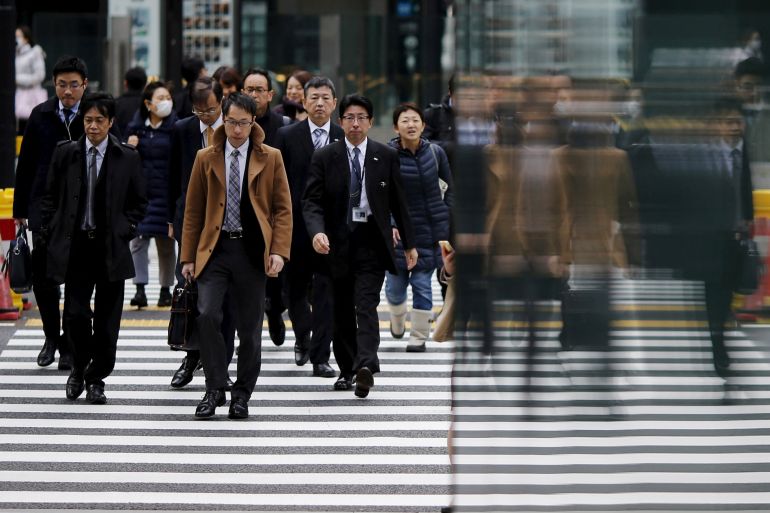Japan’s economy rebounds less than expected amid COVID recovery
Asia’s second-largest economy grows 0.2 percent during the October-December period, falling short of expectations.

Japan’s economy rebounded at a slower pace than expected in the final quarter of 2022, even as the reopening of the country’s borders gave a boost to growth.
Asia’s second-largest economy grew just 0.2 percent during the October-December period, government figures showed on Tuesday, indicating that the slowdown in the global economy may be dragging on the country’s recovery.
Keep reading
list of 4 itemsPhilippine economy grows at fastest pace in 40 years
US economy posts strong growth in Q4 but underlying weakness
Kashmir is bleeding. So is its economy
Analysts surveyed by Bloomberg had forecast 0.5 percent growth for the last quarter of the year. Japan’s economy unexpectedly shrank in the third quarter as a weak yen and higher import costs cut into household consumption and businesses.
The latest figures mean that the world’s third-largest economy grew 1.1 percent overall in 2022.
“Japan saw moderate growth in Q4 2022,” Hiroyuki Ueno, senior economist at SuMi TRUST, said in a note before the data was released.
“Consumer services benefitted from an increase in domestic travel and a rise in inbound tourists,” he wrote.
“Exports were resilient, reflecting the easing of supply constraints on automotive-related goods and moves to restore inventories overseas.”
Japan in October welcomed the return of mass tourism after two-and-a-half years of some of the world’s toughest pandemic travel restrictions.
A record 31.9 million foreign visitors visited Japan in 2019 before the country shut its borders in response to the arrival of COVID-19.
Policymakers are hoping that an uptick in domestic consumption will drive up wages to help households weather rising food and fuel costs.
Japan’s consumer prices in December rose at their fastest pace since 1981, growing 4 percent year-on-year.
Despite rising inflation, the Bank of Japan (BOJ) has bucked the international trend of hiking interest rates, sticking to an ultra-easy monetary policy aimed at boosting growth.
Outgoing BOJ Governor Haruhiko Kuroda, who is set to retire in April, has expressed a preference for an ultra-loose monetary policy until wages rise significantly.
Kuroda’s successor is expected to be nominated by Prime Minister Fumio Kishida later on Tuesday. Kazuo Ueda, an economics professor at Kyoritsu Women’s University and a former BOJ policy board member, is tipped to take over the role.